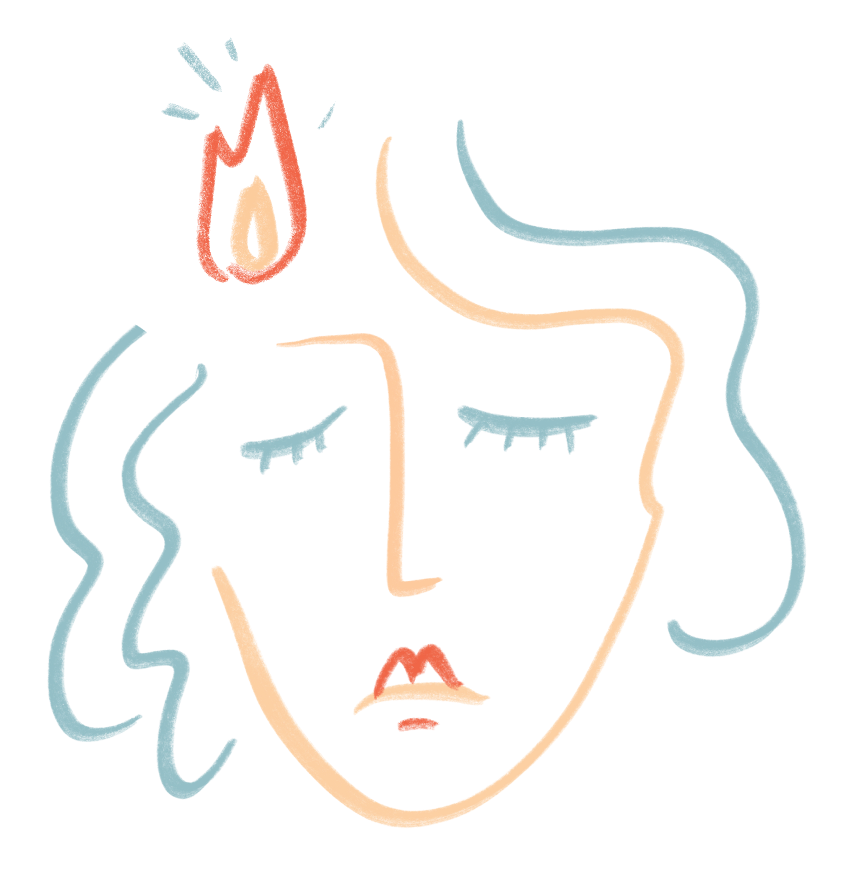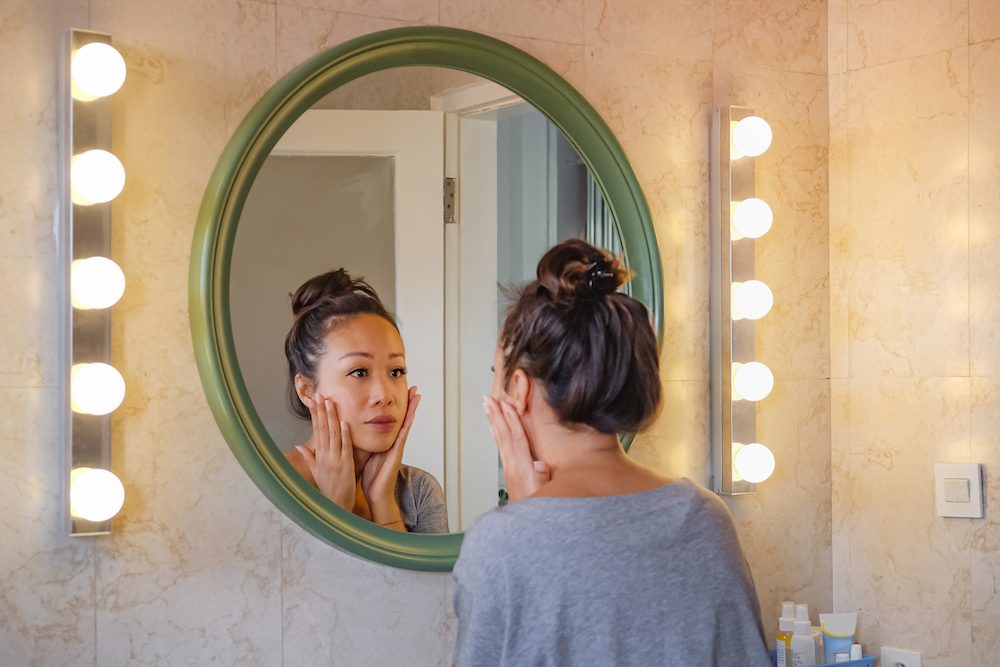Menopause and skin changes
Many different kinds of skin changes are more common during menopause:
- General aging of your skin, such as wrinkles and reduction in elasticity
- Skin dryness and itching
- Acne – menopausal breakouts can be common
- Increased skin sensitivity
- Rosacea – a condition that can cause your face to turn red, spots, and skin tightness
- Increased thickened or darkened facial hair
- Hair thinning and changes in hair texture
- Changes to the skin around the genital area
- Keratoderma climactericum, or Haxthausen disease – a scaly thickening of the skin on the hands and feet
- A possible improvement in psoriasis, if you have suffered from it previously
Discover your personalized treatment options

How common are skin changes in menopause?
- Most notice some menopausal skin changes – the type and degree of change are unique to each person
- One-third experience hair thinning at the front and crown of the head during menopause
Some conditions are not related to menopause so if you notice any differences in your skin appearance or texture, talk to your healthcare provider.
Read more about the stages of menopause.
How can you improve menopause skin changes?
1. Look after your lifestyle. A mindful, healthy lifestyle is always a good idea to improve health now and in later life. Try to exercise daily, focus on good nutrition, stay hydrated, cut down on alcohol, and avoid smoking and vaping.
2. Manage hot flashes and night sweats. Wet skin and rapid temperature changes can trigger itchy episodes once the hot flush or sweat has passed.
3. Skincare routine. Avoid strong soaps and harsh facial cleansers. Use a regular facial moisturizer to help your skin stay hydrated – hyaluronic acid and ceramides are key ingredients to look out for when choosing a moisturizer. Talk to your pharmacist about heavier body moisturizers that may help too.
Would hormone therapy (HT) help?
Yes. The use of estrogens has been shown to reduce the skin changes associated with menopause, including decreased levels of collagen and glycosaminoglycans. HT is not prescribed only to reduce the signs of aging as it comes with risks and is not suitable for everyone. HT is usually prescribed to help improve sleep, mood and hot flashes during menopause.
Read more about HT risks and benefits.
How to care for dry skin during menopause
Damage limitation
Dry skin can feel incredibly itchy so take care when scratching as your skin is thinner and prone to tear. Try to pat or rub the area through your clothes instead of scratching the skin directly. If you need to scratch, keep your nails short to minimize damage.
Overhaul your routine
Avoid perfumed bath products that may irritate your skin and use hypoallergenic detergents for your clothes and linens. Go for shorter, cooler showers rather than long, hot baths to prevent your skin from drying out further. Some people find applying a body moisturizer straight after a shower can help the skin feel moisturized for longer.
Turn down the heating
In colder months, use central heating and fires sparingly as this can dry your skin.
Keep it natural
Wear natural fibers that allow your skin to breathe rather than synthetics, which may make you sweat and feel itchy.
Seek help
If the condition of your skin is concerning, your healthcare provider may be able to suggest treatments. If hair is thinning, your healthcare provider may do tests to rule out an easily treatable cause like iron deficiency anemia or thyroid disease. Avoid heat treatments, extensions, and harsh chemicals to slow hair loss.
If you have any persistent rashes – blotches, bumps, scaly areas, or red patches – see your healthcare provider as they may be able to prescribe an effective treatment depending on the cause.
Menopause and skin FAQs
Some of my itching is due to an autoimmune skin condition, Lichen Sclerosus. It’s a condition that can occur before or at menopause and is manageable





